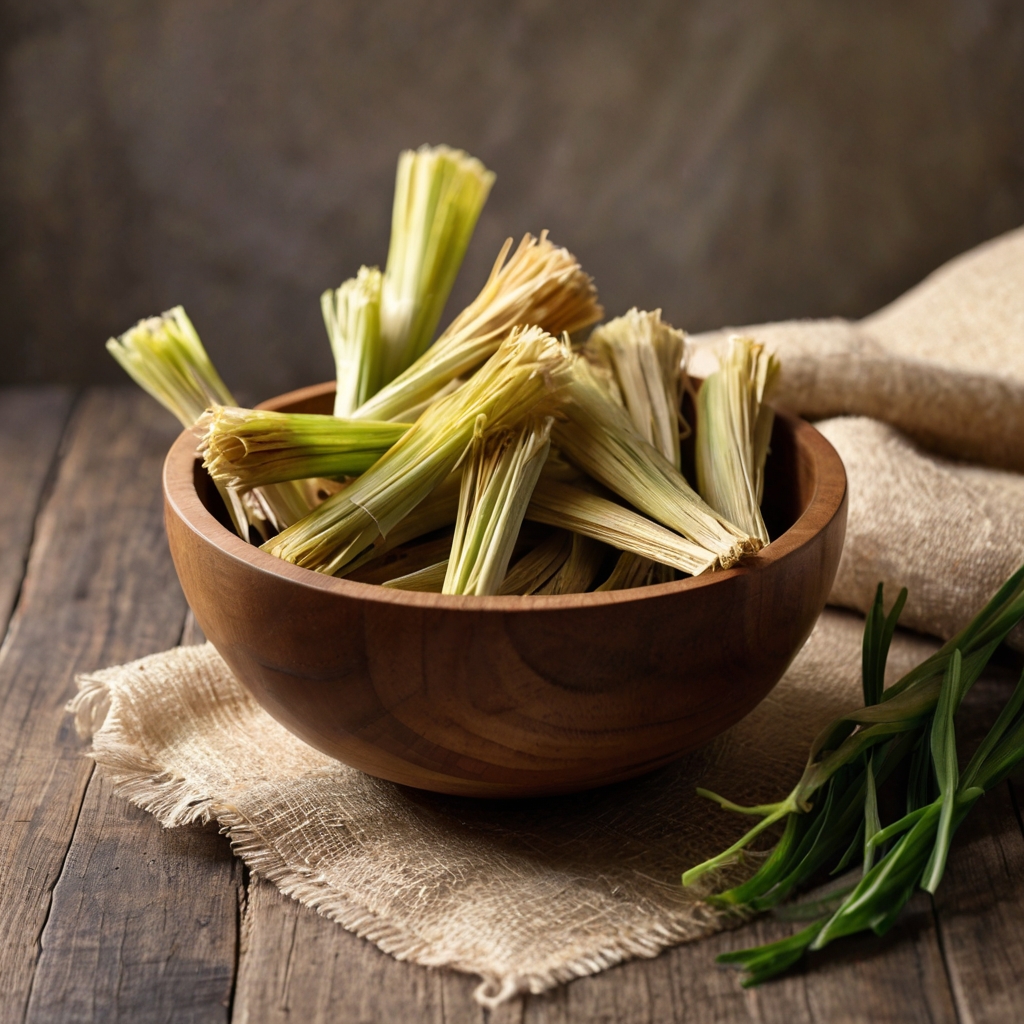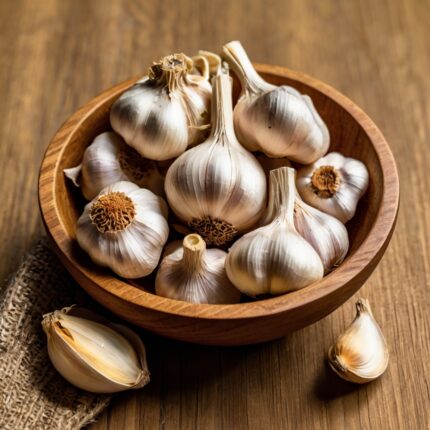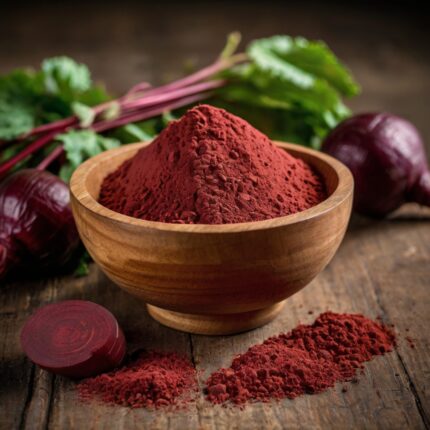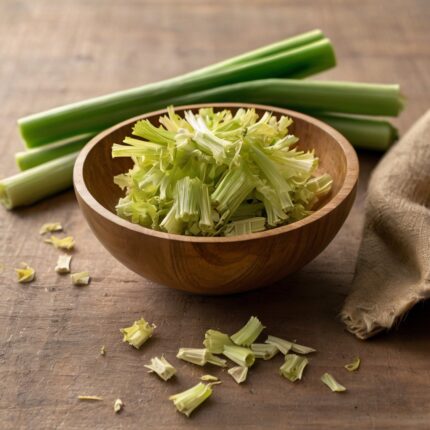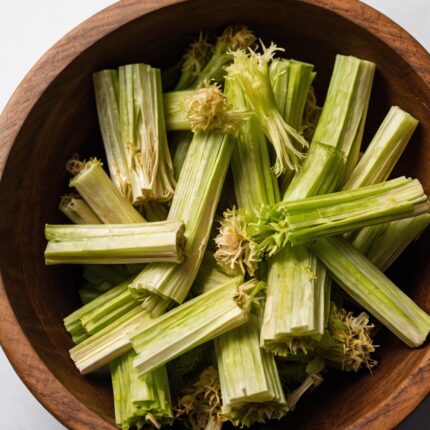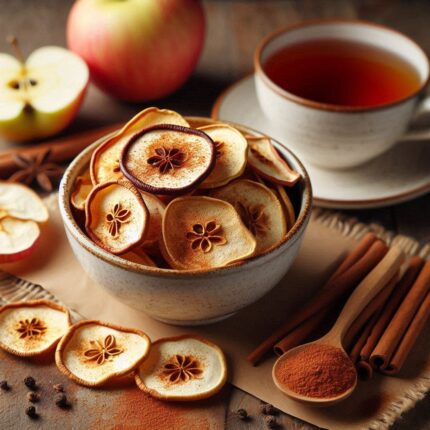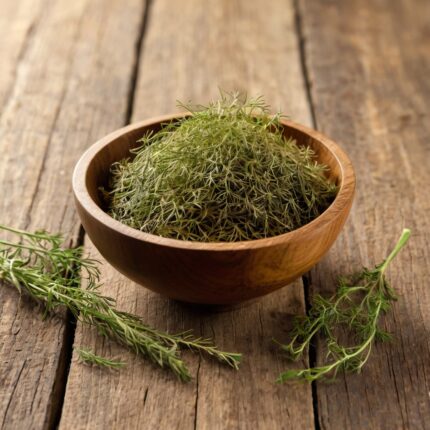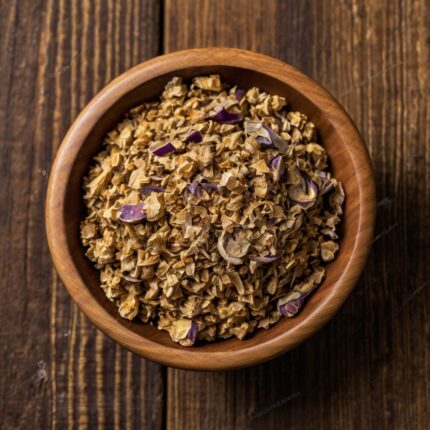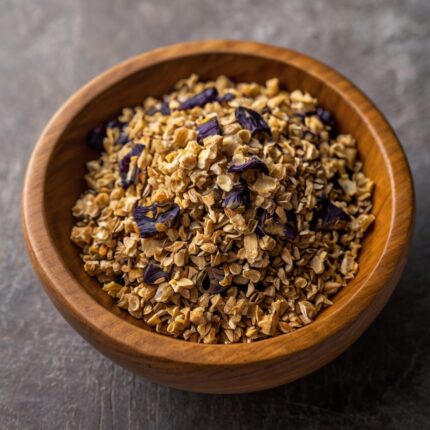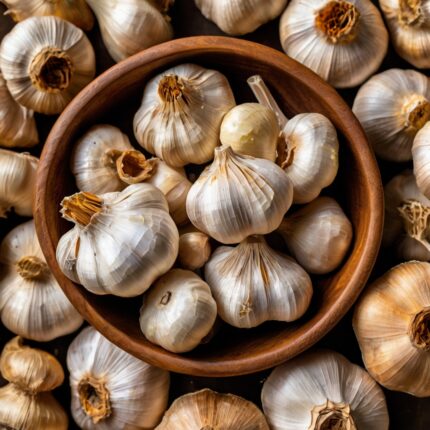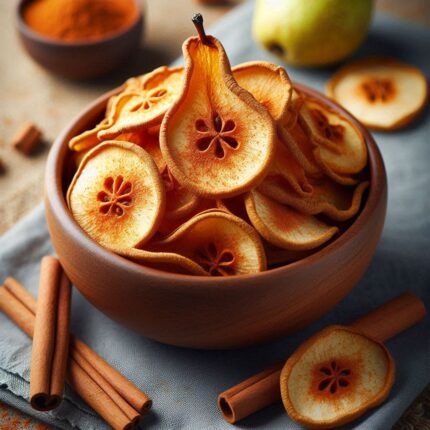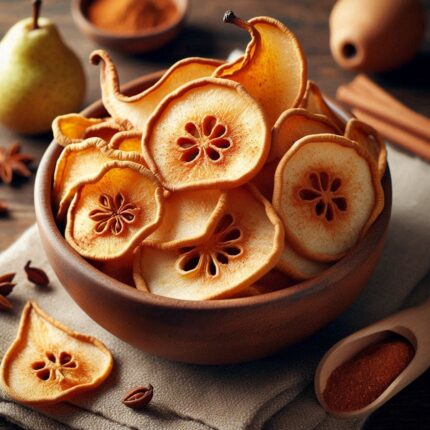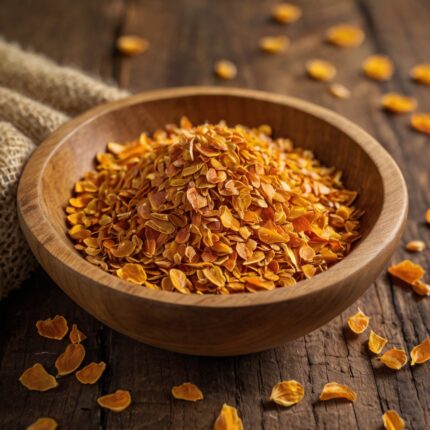**Dried shallot** refers to shallots that have been dried to preserve their flavor and nutrients. Shallot (Allium ampeloprasum), a member of the onion family, is known for its milder and sweeter taste compared to regular onions. When dried, shallots retain much of their aromatic, onion-like flavor and can be used in various dishes throughout the year.
Dried shallot is especially popular in soups, stews, meat broths, and as a seasoning in various preserved foods. Dried shallot is a good substitute for fresh shallots when they are out of season or when you need a longer shelf life for your food.
Key Nutrients and Health Benefits:
-
Rich in Vitamins :
- **Vitamin A**: Dried shallot is an excellent source of vitamin A, which is important for maintaining healthy vision, boosting the immune system, and promoting skin health.
- **Vitamin C**: Although shallots are not as rich in vitamin C as some fruits, dried shallots still provide a certain amount of this immune-boosting antioxidant, which helps in collagen formation for healthy skin and wound healing.
- **Vitamin K**: Dried shallot provides a good amount of vitamin K, which is essential for blood clotting and bone health.
-
Rich in Minerals
- **Calcium**: Shallots provide some calcium, which helps support bone health, muscle function, and nerve transmission.
- **Iron**: Dried shallot is a reasonably good plant-based source of iron, which is essential for oxygen transport and energy production in the body.
- **Potassium**: This mineral helps regulate blood pressure, balance fluids, and support muscle function, making shallots a good choice for heart health.
-
Digestive Health :
- Shallots are a good source of dietary fiber, which supports digestive health by promoting regular bowel movements and preventing constipation. The fiber in dried shallots also helps regulate blood sugar levels and supports overall gut health.
- Dried shallots contain prebiotics, which help nourish beneficial gut bacteria and promote a healthy microbiome. This may support digestion and boost immune function.
-
Antioxidant Properties :
- Shallots contain flavonoids such as quercetin, which have antioxidant properties and help reduce oxidative stress and lower the risk of chronic diseases like heart disease and cancer.
-
Anti-inflammatory
- Shallots contain compounds that exhibit anti-inflammatory effects, which can help reduce the risk of conditions associated with chronic inflammation, such as arthritis or heart disease.
-
Heart Health :
- The combination of fiber, antioxidants, and potassium in dried shallots may support heart health by improving blood pressure, reducing cholesterol levels, and promoting proper blood circulation.
Culinary Uses of Dried Shallots:
Dried shallots are often used in cooking as a substitute for fresh shallots, adding an aromatic, slightly sweet, onion-like flavor to dishes. Since dried shallots are more concentrated, a small amount is enough to enhance the taste of meals.
-
Soups and Stews
- **Soups**: Dried shallots can be added to meat broths, vegetable soups, or chicken soup. They create a depth of flavor similar to onions or shallots but with a more delicate taste.
- **Stews and Casseroles**: Use dried shallots in meat stews, vegetable casseroles, or slow-cooked dishes like kebabs to enhance the flavor profile.
-
Sauces and Gravy :
- **Gravy**: Add dried shallots to gravy to enhance its richness and flavor. Shallots pair particularly well with meats like chicken, turkey, or beef.
- **Pasta Sauces**: Incorporate dried shallots into tomato-based or creamy pasta sauces to create an aromatic and flavorful layer.
-
Rice and Grains :
- **Rice Pilaf**: Sprinkle dried shallots on rice pilaf or grain-based dishes like quinoa, couscous, or barley to give them a mild, onion-like flavor.
- **Stuffing**: Use dried shallots in stuffing or dressing recipes, especially during the holiday season, to enhance the depth of flavor.
-
Meat and Fish Dishes :
- **Grilled Meats**: Dried shallots pair well with grilled meats such as pork, lamb, beef, and chicken. Use them in marinades or sprinkle them on grilled meats to enhance the flavor.
- **Fish Dishes**: Shallots also pair well with fish such as salmon, cod, or rainbow trout. Add dried shallots to baked fish recipes or use them in fish stews.
-
Breads and Baking :
- **Savory Breads**: Add dried shallots to savory breads or snack biscuits to give them a unique flavor. They can also be used in crackers for a mild, onion-like taste.
- **Savory Muffins**: Use dried shallots in savory muffins or quick breads to enhance the flavor profile, especially when combined with cheese.
-
Snacks and Chips :
- **Seasonal Popcorn**: Sprinkle dried shallots along with other seasonings on popcorn to create a flavorful snack.
- **Vegetable Chips**: Dried shallots can be used to season vegetable chips made from potatoes, sweet potatoes, or kale.
-
Egg Dishes :
- **Omelets and Scrambled Eggs**: Add dried shallots to omelets, scrambled eggs, or frittatas to enhance their flavor. They pair well with cheese, mushrooms, and herbs like thyme or parsley.
Medicinal Uses of Dried Shallots:
Shallots, both fresh and dried, have traditionally been used for their medicinal properties in traditional medicine. Although they are not as widely used in modern herbal medicine as they once were, they still offer numerous health benefits:
-
Aiding Digestion :
- Shallots aid digestion due to their high fiber content. Dried shallot tea can be consumed to help relieve stomach discomfort, reduce bloating, and support regular bowel movements.
-
Supporting the Immune System :
- The vitamin C and flavonoids in shallots support the immune system and help protect the body against infections and illnesses. Drinking shallot broths or tea may provide additional immune system support.
-
Antioxidant and Anti-inflammatory Effects
- The antioxidants in shallots, including kaempferol and quercetin, have anti-inflammatory and antioxidant properties that can help reduce oxidative stress and inflammation in the body. This makes shallots beneficial for conditions such as arthritis or other inflammatory diseases.
-
Heart Health :
- The combination of fiber, potassium, and antioxidants in shallots can help improve heart health by supporting healthy blood pressure levels, reducing cholesterol, and enhancing blood circulation.
-
Detoxification
- Shallots have traditionally been used to support the body’s natural detoxification processes, promoting liver function and aiding in the elimination of toxins. Shallot broths or soups are often consumed as detoxifying meals.
| Nutritional | Content | per 100 grams of dried shallot:
| **Calories** | 314 |
| portoin | 9.6g |
| fat | 0.9g |
| aturated Fat | **: 0.1grams |
| **Carbohydrates** | 72.1g |
| **Dietary Fiber** | 13.4g |
| suger | 15.6g |
| vitamin A | 6,100 |
| vitaminC | 14 |
| vitamin K | 150 |
| folat | 180 |
| vitamin E | 3.4 |
| **Calcium** | 170 |
| iron | 2.7 |
| **Magnesium* | *60 |
| **Potassium** | 1,100 |
| zinc | 0.9 |
